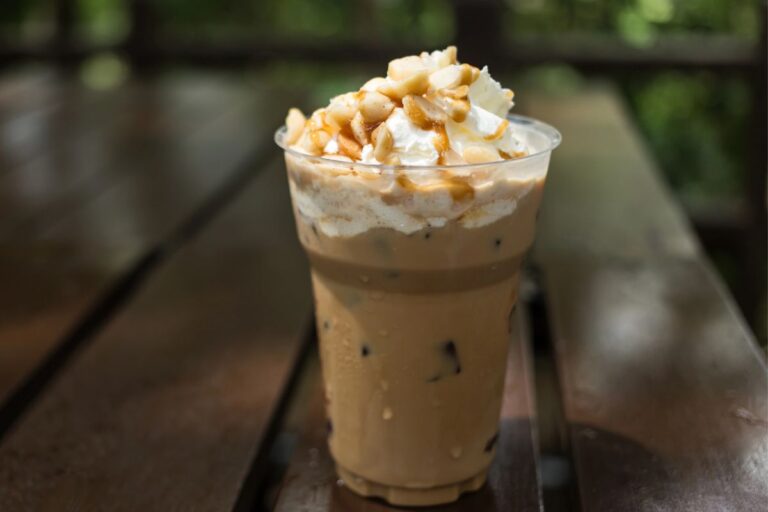These 15 Popular Foods Could Be Destroying Your Teeth
Our daily diets are filled with foods that can unknowingly harm our teeth. Sugars, acids, and certain textures can weaken enamel, increase plaque buildup, and lead to cavities and discoloration. Some foods may seem healthy, but they carry hidden dental health risks. Being mindful of these potential culprits can help protect your teeth and gums. Let’s explore some common foods that may be impacting your smile.
Citrus Fruits

Citrus fruits like oranges, lemons, and grapefruits are loaded with vitamin C, but they also contain high levels of acid. This acidity can erode enamel over time, leaving teeth more sensitive and prone to cavities.
Even juices made from these fruits can be risky, especially when consumed frequently. While they offer many health benefits, it’s best to rinse with water after eating them. This can help wash away some of the acid that may be left on your teeth.
Soda and Carbonated Drinks

Carbonated sodas are among the worst culprits for tooth decay, even if they’re sugar-free. The acidity in soda, combined with carbonation, creates a highly erosive effect on tooth enamel. Sugary sodas are especially harmful, as they can also feed bacteria in the mouth, leading to plaque buildup and decay. Even sparkling water, if consumed often, can have a similar effect. Limiting soda intake can help keep teeth strong and healthy.
Candy and Chewy Sweets
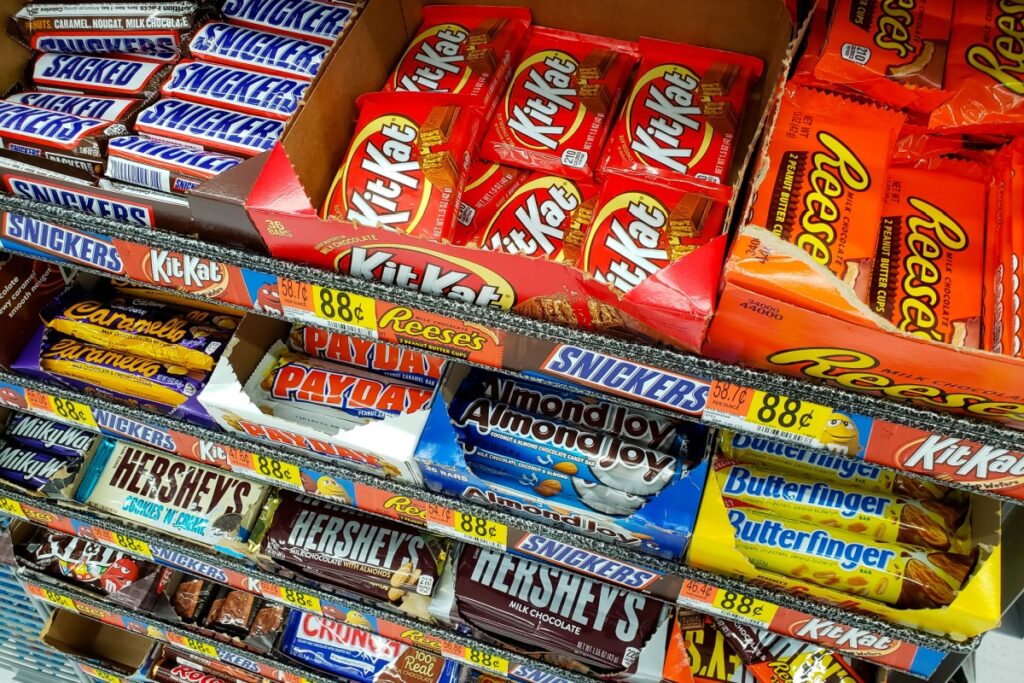
Sticky, chewy candies are a recipe for dental issues because they adhere to teeth and can be challenging to remove. These sweets often contain high amounts of sugar that bacteria in the mouth turn into acids, attacking tooth enamel.
Hard candies are also harmful as they can chip teeth if bitten too forcefully. Even fruit-flavored gummies, though they may seem healthier, can be similarly damaging. Opting for treats that don’t stick to teeth can reduce the risk of decay.
Dried Fruits
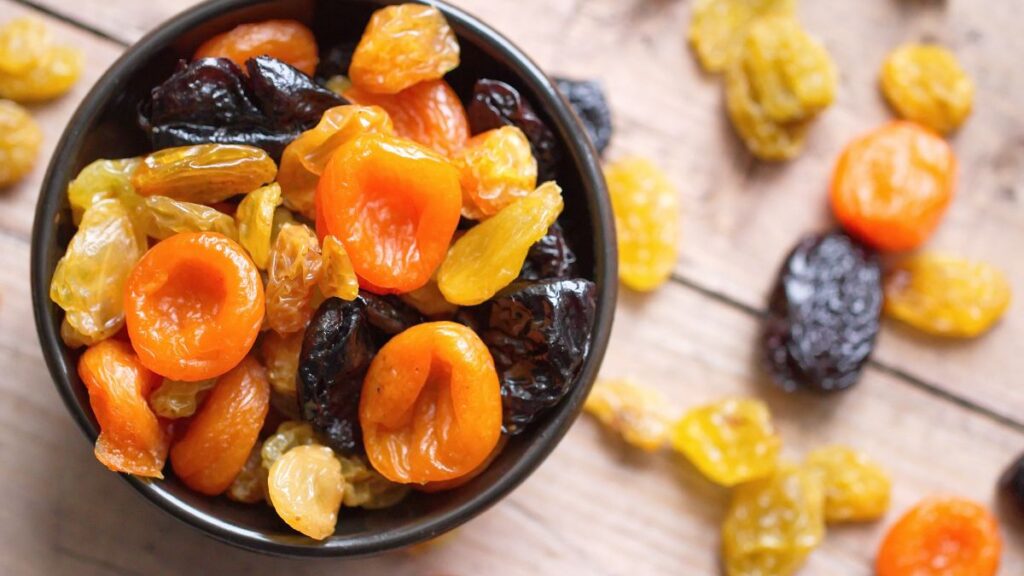
While dried fruits may seem like a nutritious snack, their sticky texture and concentrated sugar content make them harmful to teeth. Raisins, apricots, and other dried fruits can get trapped in the crevices of teeth, creating an ideal environment for bacteria.
If teeth are not thoroughly cleaned afterward, this can lead to cavities. Choosing fresh fruits over dried options is a better choice for dental health. Drinking water after consuming dried fruits can also help.
Coffee and Tea

Dark-colored beverages like coffee and tea are notorious for staining teeth over time. These drinks contain tannins, which cling to enamel and cause discoloration with regular consumption. Additionally, coffee is acidic, which can contribute to enamel erosion.
Adding sugar or cream can make matters worse, as the sugars feed oral bacteria. Using a straw and rinsing with water afterward can help limit the staining effect.
Bread and Refined Carbohydrates

White bread and refined carbs break down into sugars in the mouth, which can cling to teeth and cause plaque buildup. When chewed, these foods can become gummy and stick between teeth, providing a food source for bacteria.
Whole grains are a better alternative, as they don’t cling to teeth as easily. Brushing and flossing after consuming refined carbs can reduce the risk of decay. Swapping white bread for whole-grain options is also beneficial.
Alcoholic Beverages

Alcoholic drinks can dry out the mouth, reducing saliva production that’s essential for washing away bacteria and food particles. Certain mixed drinks, especially those high in sugar, are particularly harsh on teeth.
Without sufficient saliva, acids, and sugars can linger longer on teeth, increasing the risk of decay. Staying hydrated and drinking water alongside alcohol can help mitigate some of these effects. Limiting sugary mixers can also be helpful.
Tomato-Based Sauces
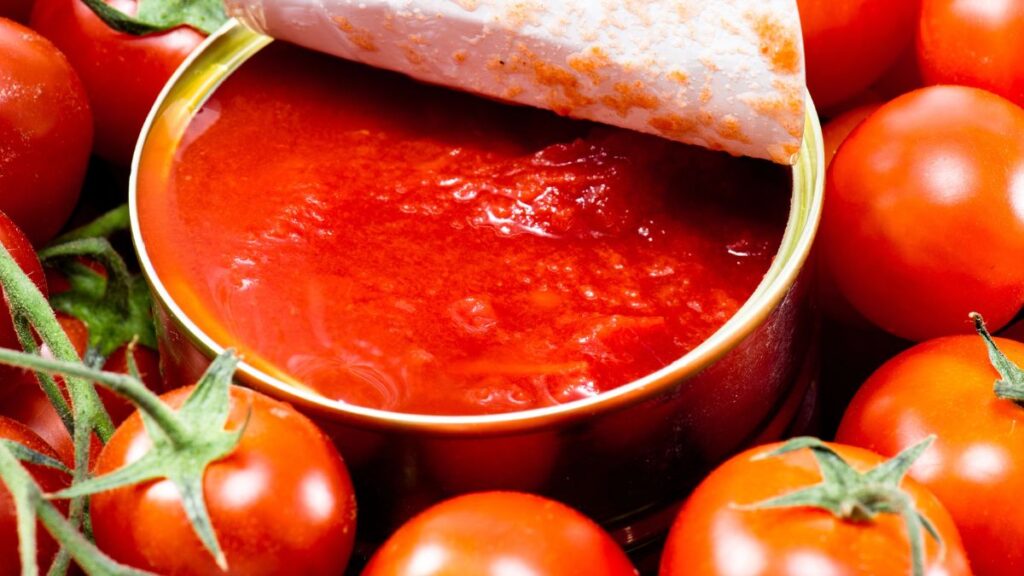
Tomato sauces are acidic and can wear down enamel over time, especially when consumed frequently. Pasta sauces, ketchup, and salsas can stain teeth as well, leading to discoloration with repeated exposure.
The combination of acidity and deep red pigments makes these sauces a dental challenge. Using sauces sparingly and rinsing with water afterward can help protect teeth. Opting for sauces with lower acidity may also be beneficial.
Potato Chips

Potato chips might seem harmless, but they contain starch that breaks down into sugar in the mouth, feeding cavity-causing bacteria. Chips can get stuck between teeth, where bacteria can feast on the particles and produce acids.
This can result in plaque buildup and eventually lead to tooth decay if left unaddressed. Rinsing with water and flossing after eating chips can help remove trapped particles. Choosing snacks with less starch can also reduce these risks.
Berries and Dark Fruits

Berries like blueberries, blackberries, and cherries are packed with antioxidants but can stain teeth due to their dark pigmentation. Over time, these stains can become more difficult to remove, especially if teeth are already slightly discolored.
Their natural sugars can also increase the risk of decay if not cleaned away properly. Eating berries with other foods can reduce staining, and rinsing after can help remove residues. Regular brushing is also key to preventing buildup.
Pickles and Vinegar-Based Foods

Pickled foods are delicious but contain vinegar, which is highly acidic and can wear down enamel if consumed frequently. The acidity in vinegar can weaken teeth, making them more susceptible to decay and sensitivity.
Eating pickles occasionally is fine, but frequent consumption may be too harsh for tooth enamel. Rinsing with water after eating acidic foods can help remove some of the acid left on teeth. Avoiding direct biting on pickles may also help reduce enamel damage.
Ice
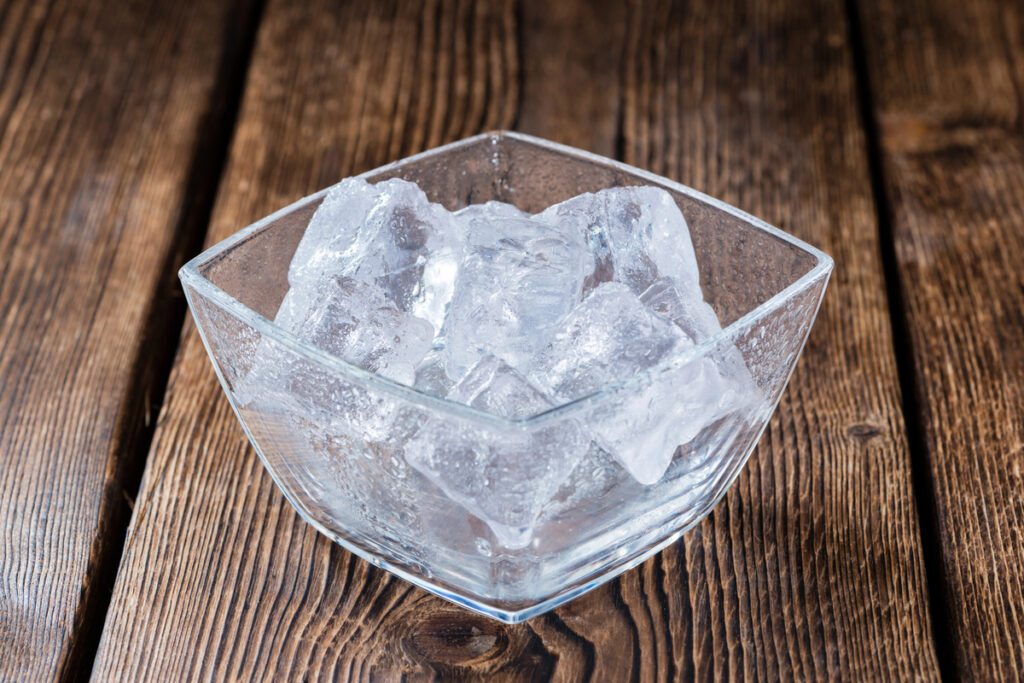
Many people enjoy chewing on ice, especially in hot weather, but this habit can lead to chipped or cracked teeth. Ice is hard, and biting into it can place excessive pressure on teeth, leading to damage.
This can also make teeth more sensitive to hot and cold foods. Using a straw instead of chewing ice directly can help reduce this habit. Avoiding ice cubes in drinks can also help if chewing ice has become a frequent practice.
Energy Drinks
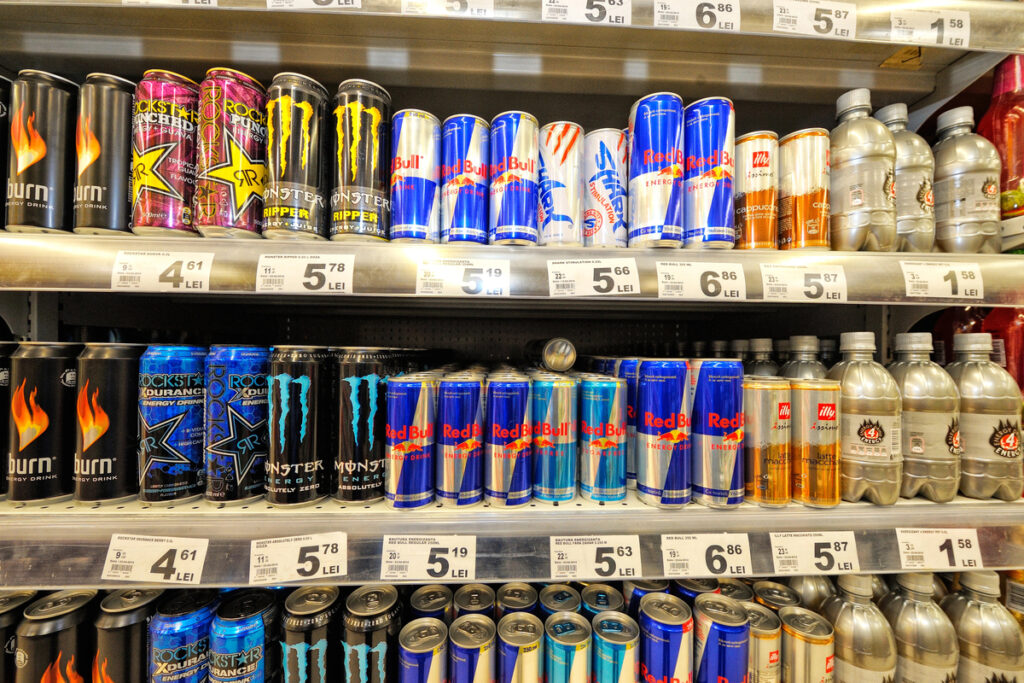
Energy drinks are loaded with sugar and acidity, a combination highly damaging to teeth. These drinks can erode enamel faster than other beverages, especially if consumed regularly.
The sugar content feeds bacteria in the mouth, leading to plaque and eventually decay. Drinking water instead of energy drinks can prevent these issues, and limiting these beverages to occasional use can also help protect teeth.
Crackers
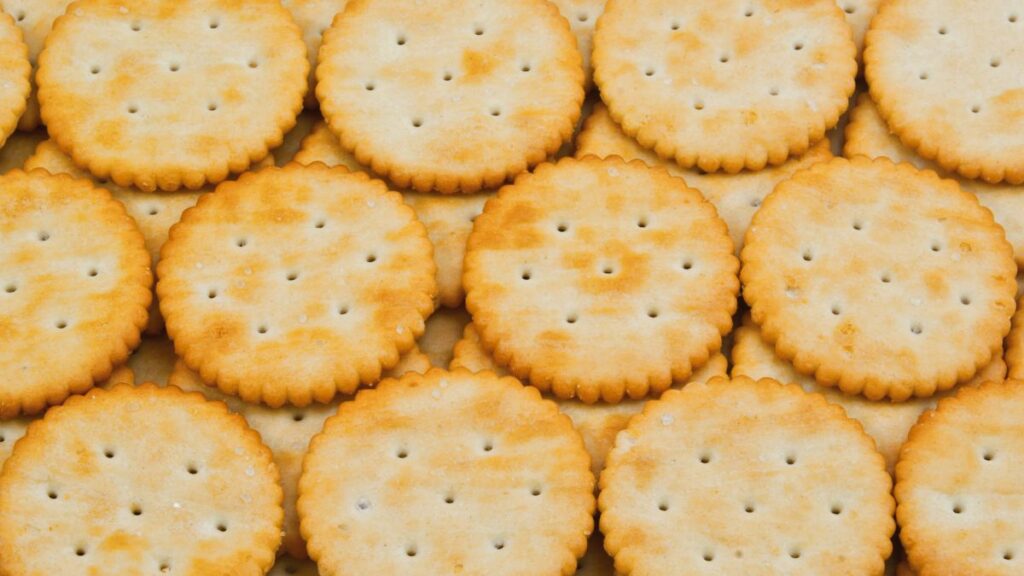
Certain crackers, especially refined flour varieties, break down into a paste that can get trapped between teeth. This starchy residue feeds bacteria in the mouth, increasing plaque buildup and leading to cavities.
Crackers may seem harmless, but their stickiness and carb content make them risky. Choosing whole-grain crackers and rinsing with water afterward can help reduce this effect. Brushing and flossing after snacks is also beneficial.
Apples and Other Acidic Fruits

Apples and other acidic fruits are nutritious, but they can still erode enamel if eaten in large quantities. The acidity of apples can soften enamel, especially if teeth aren’t cleaned afterward.
Apples are still a great choice for their health benefits, so moderation is key. Rinsing with water after eating acidic fruits can help wash away some of the acids. Cutting down on highly acidic varieties can also help limit erosion.
Top 15 Things Retirees Need To Stop Putting In Their Grocery Cart To Stay Healthy

As retirees enjoy their time off, maintaining a healthy lifestyle becomes increasingly important. One key aspect is being mindful of what goes into the grocery cart. Here are many things retirees should avoid buying to support their health and well-being.
Top 15 Things Retirees Need To Stop Putting In Their Grocery Cart To Stay Healthy
15 Effortless and Nourishing Recipes to Make for People Over 60 Who Need Help Cooking

Cooking for seniors doesn’t have to be complicated or time-consuming. With easy recipes tailored to their needs, seniors can enjoy delicious and nutritious meals without the stress. From one-pot wonders to flavorful soups and simple salads, these recipes offer convenience, flavor, and nourishment for seniors looking to maintain a healthy and satisfying diet.




